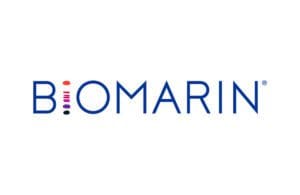 BioMarin Pharmaceutical (Nasdaq:BMRN) saw its share price dip 3.5% in mid-day trading to $88.30 after announcing a reorganization.
BioMarin Pharmaceutical (Nasdaq:BMRN) saw its share price dip 3.5% in mid-day trading to $88.30 after announcing a reorganization.
The company said it would cut 4% of its workforce, or approximately 120 positions, to save cash.
In a press release, BioMarin cited the potential launch of Roctavian as one of the reasons beyond the layoff. The company also said the reorganization would enable it to “better focus” on its R&D pipeline and capitalize on commercial launches.
“Change is necessary to fulfill our commitment to operating the business in the best interest of our patients, shareholders, and other stakeholders. This requires that our organization is the right size, has the right structure, and has the right focus to operate with maximum effectiveness and efficiency,” said Jean-Jacques Bienaimé, CEO of BioMarin, in a news release. “This change allows us to continue building upon our core strength in genetic discovery to have a transformative impact on the lives of even more patients.”
The company expects the U.S.-based reorganization to conclude by the end of the year. BioMarin anticipates that reorganization will cost approximately $20–25 million pre-tax.
The company anticipates that it will lead to annual savings of roughly $50 million starting in 2023.
Analyst firm GlobalData anticipates global revenue sales to hit $1 billion by 2027, assuming it wins requisite regulatory approvals. i
The company recently received European approval for Roctavian.
BioMarin recently resubmitted a Biologics License Application to FDA for Roctavian (valoctocogene roxaparvovec), which would be a novel gene therapy for severe hemophilia A.
St. Jude Children’s Research Hospital and University College London originated valoctocogene roxaparvovec.
In 2019, the agency delayed the company’s first application, asking for two additional years of follow-up data from the Phase 3 GENEr8-1 study.
In a preliminary review, the Institute for Clinical and Economic Review (ICER) estimated that Roctavian, if FDA-approved, would lead to$4 million in savings compared to emicizumab prophylaxis per patient over a lifetime.
Filed Under: Cell & gene therapy





Tell Us What You Think!
You must be logged in to post a comment.